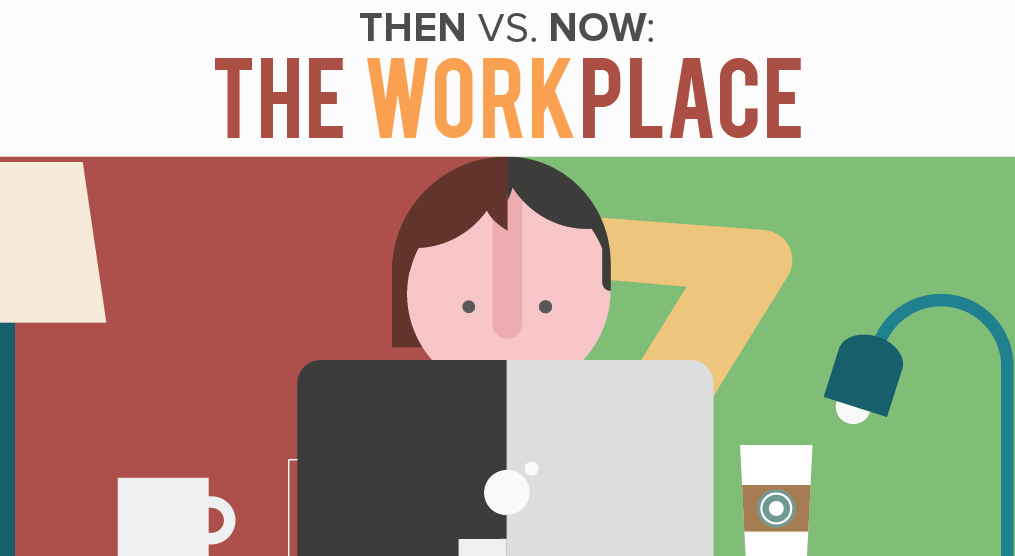10 Make-Or-Break Job Interview Questions You Should Know How to Answer
Gearing up for an important interview that could determine your future career? Here are 10 job interview questions you’ll need to be prepared for.
Published 25 Jun 2018

If you’ve made it out of university alive and you’re ready to step into the working world, congratulations! You’re embarking on an exciting new adventure — just steps away from that dream job.
But before you start to rake in the moolah, you’ll need to ace that all-important job interview. Follow along as we delve deep into what you should (and should not) say when asked these 10 crucial job interview questions.
#1. Tell me about yourself

This ice breaker is used to gauge your character and determine how your experience is useful to the position you are applying for.
DON'T: Tell your entire life story. Spare personal details like how many cats you have or what you like to do on the weekends unless it is directly relevant to the job. Don’t rattle on about what’s already in your resume. Remember, it’s a job interview and not a first date!
DO: Keep things short and sweet by preparing an elevator pitch — a 60-second speech that highlights how you are qualified for the job. Use the present-past-future formula by beginning with sharing key points about your academic background and passions followed by the relevant skills you may have picked up during an internship. End your pitch on a good note by sharing where you see yourself in the next few years.
#2. What is your greatest strength?

This question is used to gauge if your best qualities align with the needs of the company.
DON'T: Expound a generic list of good qualities such as being capable, hard-working or a team player. Your interviewer has probably heard it all before, and these qualities say nothing about your ability to perform your assigned tasks in the future.
DO: Pore over the job posting to get a glimpse of your future tasks and identify the skills that are required to meet the specific demands of the job. Illustrate how you possess these qualities by providing examples of projects you led at university or tasks you completed successfully during your internship period.
#3. What is your greatest weakness?

What might come across as a trick question is actually a way to judge if you understand your shortcomings and are actively working to improve on them.
DON'T: Give yourself a backhanded compliment. “I work too hard” or “I’m too much of a perfectionist” aren’t real issues and only give the impression that you are lacking self-awareness. That said, don’t jeopardise your chances by divulging problems directly related to the job and saying “I struggle to wake up in the morning and get to work on time”.
DO: Focus on shortcomings that can be solved and include the steps you are taking to fix these problems. For example, spending 2 hours a day watching videos to brush up on your Google Doc skills or learning 10 new words each day to improve your English.

#4. What has been your biggest accomplishment?

This question is used to assess the breadth of your capabilities and to see what sets you apart from other candidates.
DON'T: Be too humble or too cocky. While you shouldn’t downplay your achievements in a way that causes the interviewer to second guess your abilities, it’s just as important that you don’t brag about them either.
DO: Capitalise on this moment to showcase how your capabilities will make you a valuable addition to the company. Tell a story using STAR — situation or task, approach and results. Describe the situation for context, then mention the game plan that led to your success and explain how it benefited the people involved.
#5. What do you consider to be your biggest failure?

This isn’t a deliberate ploy to deny you the job. This question is meant to suss out how you view failure, how likely you are to take risks and what you’ve learned from your mistakes.
DON'T: Attempt to curb the question with a weak strategy like “I haven’t had any major failures”. Everyone makes mistakes and being unwilling to admit them is not a good look.
DO: Pinpoint a real moment of failure with a solid learning experience, so you are able to expand on the skills you developed as a result of that event and explain how it will benefit you in your new position.
Apply for university with EduAdvisor
Secure scholarships and more when you apply to any of our 100+ partner universities.
Start now#6. Why do you want to work here?

This question seeks to discover what you know about the company.
DON'T: Be too blunt. “I need a job and you’re hiring” might be the honest answer, but it doesn’t tell the interviewer why you’re interested to work at their company over any other.
DO: Scour the company’s website or social media accounts to learn about their vision and recent achievements. Align your goals with the company’s objectives and highlight the skills you have that can help the company achieve its goals.
#7. Why should we hire you?

What the interviewer really wants to know is what makes you the best fit for the position over other potential candidates.
DON'T: Ramble on about every one of your accomplishments.
DO: Match your best qualities to the job requirements to show that you have what it takes to get the job done. To set you apart from the competition, reveal your other selling points such as industry experience, additional technical skills or extra-curricular experiences that have armed you with a unique skill set.
#8. Where do you see yourself in 5 years?

This question seeks to unearth your career goals to evaluate how ambitious you are, your ability to set realistic expectations and if this position fits into your long-term plan.
DON'T: Be too vague or too specific about your plans. “I see myself in a top position” doesn’t really say much about you. However, having too many different ideas about your future may also mean that you’re not particularly invested in this job. That being said, the last thing you want to do is lie. Instead, be upfront about any ongoing commitments that might interfere with your performance.
DO: Even if you’re still considering your options, it’s good to mention that you’re looking forward to growing with this company so they know that it’s worth their time and effort to train you.
#9. What are your salary expectations?

You’ll need to ensure that you are compensated according to your qualifications and experience without putting off your potential employer with unrealistic expectations.
DON'T: Demand an exorbitant starting salary as this is a recurring red flag for employers.
DO: Research to see what a realistic starting salary in your field looks like. If your interviewer doesn’t bring this up during the interview, it’s important you only mention it (if at all) at the end of the interview.

#10. Do you have any questions?

This question presents a great opportunity for you to show that you were engaged throughout the interview and that you’re interested in the company.
DON'T: Say no. It’s also a good idea to stay away from questions pertaining to non-work activities like lunch hour or office gossip as well as questions about the company that can be easily answered with a quick Google search.
DO: Prepare at least 2 open-ended questions about the company beforehand. The questions could be anything from asking the interviewer to explain the daily tasks of the role in more detail or asking about the company culture.
You could also ask the interview to elaborate on topics that were mentioned during the interview to show that you’ve been paying attention. However, ensure that you do not ask about something that the interviewer has already explained.
Job interviews can be extremely daunting, but it’s nothing a little preparation can’t fix. Remember to speak up, be confident (fake it till you make it, as they say) and sell your most valuable asset — you!






